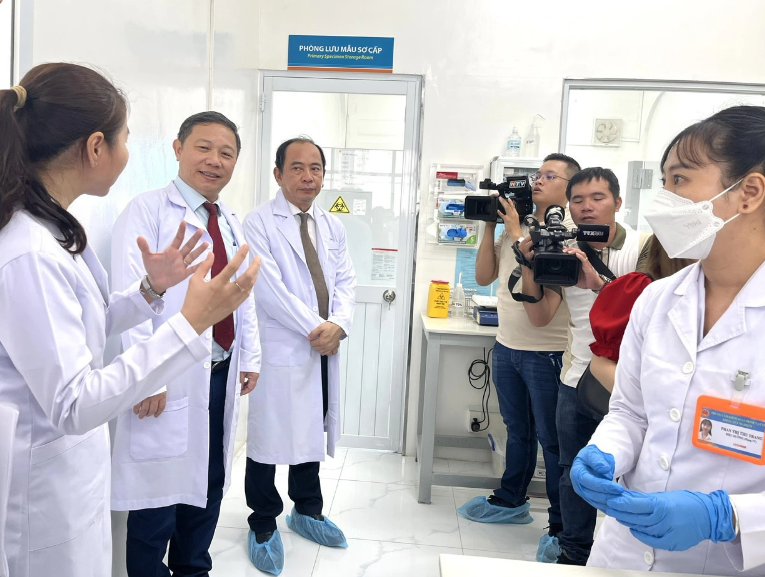The Ho Chi Minh City Center for Disease Control officially put a serum bank into operation on Thursday in a bid to increase the capacity of disease detection and prediction, easily evaluate herd immunity, and control illnesses well.
Speaking at the opening ceremony for the serum bank, Dr. Nguyen Hong Tam, director of the center, affirmed that the serum bank plays a key role in controlling and monitoring diseases, contributing to protecting public health.
The serum bank has a storage capacity of 400,000-450,000 samples.
It will be expanded during the 2024-30 period.
The center will plan to collect serum samples periodically for the bank, follow steps of storage and traceability, and use these samples for certain purposes to put potential diseases under control, said Dr. Tam.
The center has monitored the developments of some diseases such as AIDS, dengue, rubella, and the illness caused by Zika virus via serum tests over the past many years, said the representative of the center.
In preparation for the opening of the serum bank, and the assessment of herd immunity against COVID-19, the Ho Chi Minh Center for Disease Control teamed up with the Oxford University Clinical Research Unit in 2022 to collect more than 2,500 serum samples at many hospitals in the city for testing.
The results showed that 90 percent of the tested people had antibodies against COVID-19.
In the initial stage, the center will use samples sourced from the serum bank to check herd immunity against measles and hand, foot, and mouth disease to predict the risk of a pandemic hitting the city, Nguoi Lao Dong (Laborer) newspaper reported, citing Dr. Tam.
|
|
| Duong Anh Duc (L, 2nd), vice-chairman of the Ho Chi Minh City People’s Committee, visits the serum bank at the Ho Chi Minh City Center for Disease Control. Photo: Thuy Duong / Tuoi Tre |
Like us on Facebook or follow us on Twitter to get the latest news about Vietnam!



















































